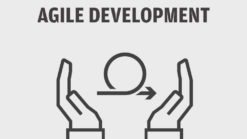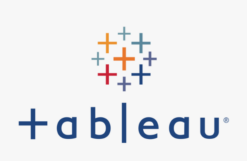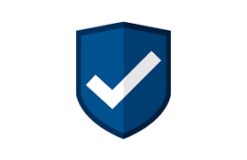Duration: 8 days – 56 hrs
Overview
The Lean Six Sigma Black Belt Training Course is an advanced and comprehensive program designed to equip professionals with the knowledge, skills, and methodologies required to lead and manage complex process improvement initiatives within organizations. This course integrates the principles of Lean and Six Sigma, two renowned methodologies, to achieve operational excellence, minimize waste, and optimize overall business performance.
Objectives
- Master Lean and Six Sigma Principles: Develop a deep understanding of Lean and Six Sigma methodologies, tools, and techniques.
- Lead Complex Improvement Projects: Competently lead end-to-end process improvement projects, from problem identification to successful implementation.
- Reduce Variability and Waste: Identify and eliminate defects, minimize process variability, and streamline processes for efficiency and quality.
- Data-Driven Decision-Making: Acquire proficiency in data-driven decision-making through statistical analysis and process control methodologies.
- Drive Cost Savings: Implement Lean Six Sigma methodologies to achieve cost reduction and optimize resource utilization.
- Foster a Culture of Continuous Improvement: Cultivate a culture of continuous improvement within their organizations, engaging teams in Lean Six Sigma initiatives.
- Achieve Certification: Prepare for and attain Lean Six Sigma Black Belt certification, a globally recognized credential demonstrating expertise in process improvement.
Audience
- Process Improvement Professionals: Those responsible for identifying and implementing process improvements within their organizations, including process engineers, quality managers, and continuous improvement specialists.
- Project Managers: Professionals who lead cross-functional teams and wish to enhance their project management skills while incorporating Lean and Six Sigma principles.
- Managers and Team Leaders: Individuals in leadership roles seeking to drive operational excellence, reduce costs, and improve overall performance within their teams and departments.
- Quality Control Specialists: Professionals responsible for quality assurance and control in manufacturing, healthcare, service, and other industries.
- Business Analysts: Those involved in analyzing data, identifying trends, and making data-driven decisions to improve processes.
- Supply Chain Managers: Professionals working to optimize supply chain processes and reduce inefficiencies.
- Operations Managers: Leaders responsible for managing day-to-day operations and process performance.
- Consultants: Individuals working as process improvement consultants who aim to enhance their expertise and deliver more effective solutions to clients.
- Anyone Committed to Process Excellence: Individuals from diverse backgrounds who are passionate about process improvement and wish to attain expertise in Lean and Six Sigma methodologies.
- Professionals Seeking Career Advancement: Individuals looking to enhance their qualifications and career prospects by obtaining Lean Six Sigma Black Belt certification.
- Organizations Promoting a Culture of Continuous Improvement: Companies and institutions interested in fostering a culture of continuous improvement often send their employees, especially those in leadership roles, to Lean Six Sigma Black Belt training to drive change and achieve operational excellence.
Pre- requisites
- Lean Six Sigma Green Belt certification or equivalent knowledge and experience.
- Familiarity with basic statistical concepts is recommended but not mandatory.
- Access to statistical software for data analysis (e.g., Minitab, JMP, or similar tools).
- A laptop or computer with the necessary software and internet access for course materials and communication.
- Commitment to completing course assignments, projects, and assessments.
Course Content
Introduction and Principles of Lean Six Sigma
- Context of problem solving
- Practical Definition of Lean Six Sigma
- What is Six Sigma?
- Six Sigma Principles
- What is lean?
- Lean Principles
- Types of Waste
- Lean vs. Six Sigma
- Lean Six Sigma Combined
- Lss Belts, Roles and Responsibilities
- Identifying Sources of Projects and Project Selections
- Voice of the Customer
- Critical to Quality
- Types of Lean Six Sigma Projects
Dmaic Methodology
- Define
- What is a Project Charter
- Writing a Problem & Goal Statement
- Project Scoping and Team Members
- Creating a high-level process or SIPOC
- Monthly Metric/KPI Baselining
- RACI Matrix
- Measure
- Identifying types of Data
- Basic Statistics (Average and Standard Deviation)
- Understanding Common & Special Cause Variation
- Control Charts
- Creating a data collection plan
- Dirty Data and Data Cleaning
- Sampling Techniques
- Detailed Process mapping, Swim Lane and Value Stream Mapping
- MSA (Measurement System Analysis)
- Analyze
- Brainstorming
- Fishbone/Ishikawa Diagrams
- Exploratory Data Analysis/Data Stratification/Segmentation
- Graphical Analysis (Scatterplot, Boxplot, Histogram etc)
- Intro to Hypothesis Testing and Minitab (Confidence Level/Interval, Type I&II Error, P-value)
- Statistical Techniques Parametric and Non Parametric Tests and how to interpret results
- Multiple Regression and Logistic Regression
- Pareto Analysis
- 5 Why Analysis
- Improve
- Choosing the best solution
- Creating Action Plans
- Change Management (ADKAR Model)
- 5S and Visual Management
Control
- FMEA (Failure Mode Effect Analysis)
- Poka Yoke/Mistake Proofing
- Standardization Plan
- Creating a Control Plan and Charts











